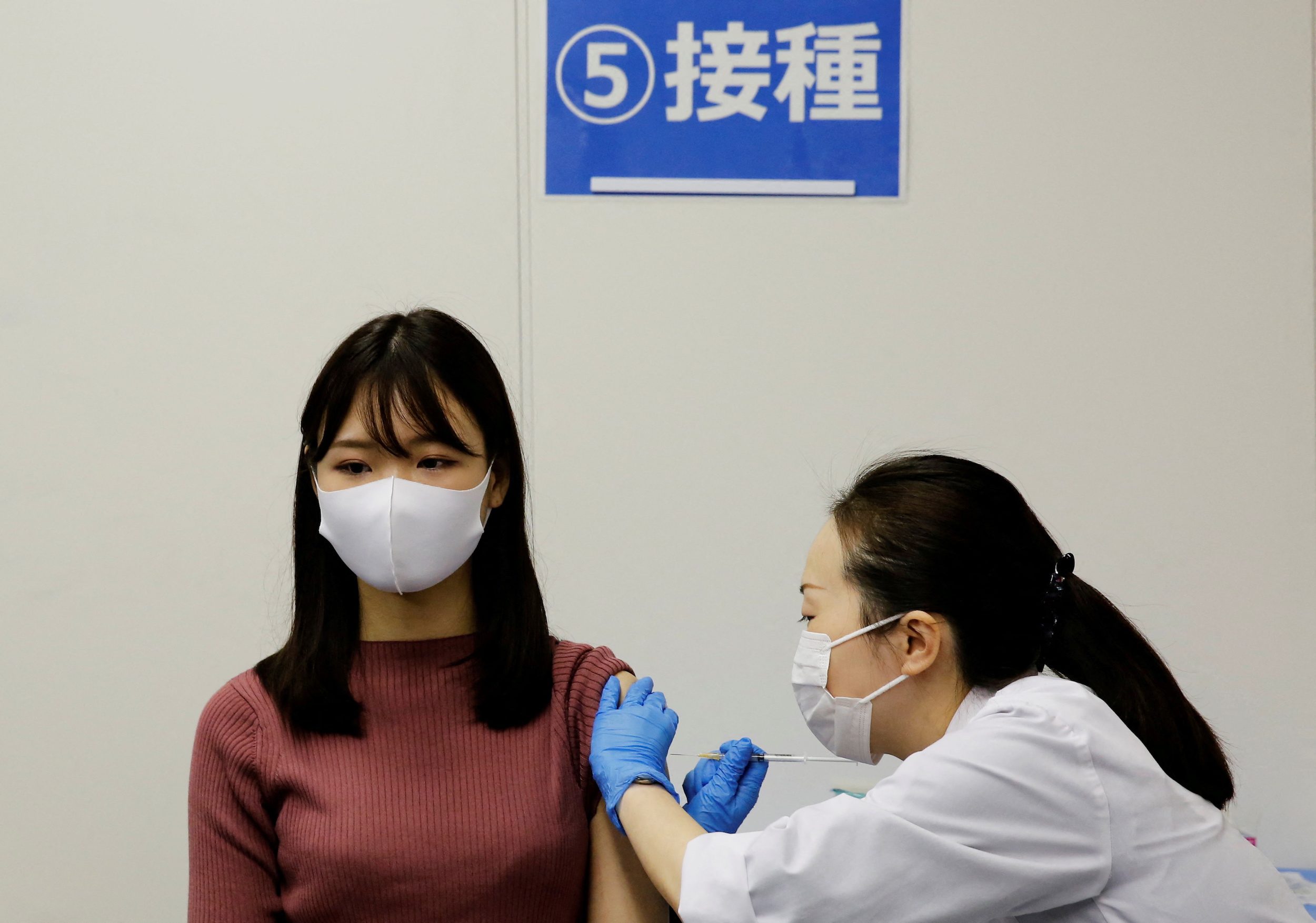SUMMARY
This is AI generated summarization, which may have errors. For context, always refer to the full article.

TOKYO, Japan – Japan will ease border controls imposed to counter the pandemic, Prime Minister Fumio Kishida said on Thursday, February 17, softening measures that have been among the strictest imposed by wealthy nations and have been slammed by business and educators.
About 150,000 foreign students have been kept out of Japan, along with workers desperately needed by an aging nation with a shrinking population, prompting warnings of labor shortages and damage to Japan’s international reputation.
From March, authorities will raise the number of people allowed to enter the country to 5,000 a day, from 3,500 now, Kishida told a news conference. The quarantine period for people entering Japan will be reduced to three days in certain conditions, from seven days now, he said, adding that in some cases there would be no quarantine.
The shift comes, he said, as the number of coronavirus infections have shown signs of declining, meaning the country needed to start preparing for a new phase.
Kishida also said that semi-emergency measures in place for some 17 regions would remain in place until March 6.
Japan, which has effectively been sealed off to non-residents for two years, briefly eased its border controls late in 2021 but tightened them again just weeks later as the Omicron variant emerged overseas.
Japan currently designates 82 nations as “high risk” and requires three or six days of mandatory hotel quarantine as part of the week of isolation for many. Two weeks of quarantine were required until mid-January.
Kishida and his government have hailed the tight border controls for buying Japan time as Omicron surged around the world, and a vast majority of the public supports them.
Yet with the variant now widespread in Japan, which is struggling to roll out booster shots, business leaders and some politicians have warned the measures are obsolete.
For Kishida, who faces a crucial election in July, deciding when and how to change the measures has been tricky, said political analyst Atsuo Ito.
“If you look at the overall situation now, they’re meaningless: you can get the virus anywhere. But as a result of having them, he got a lot of public support,” he said.
If they’re not changed, Ito added, “the result over the long term is that Japan is going to be left behind the rest of the world.” – Rappler.com
Add a comment
How does this make you feel?





There are no comments yet. Add your comment to start the conversation.